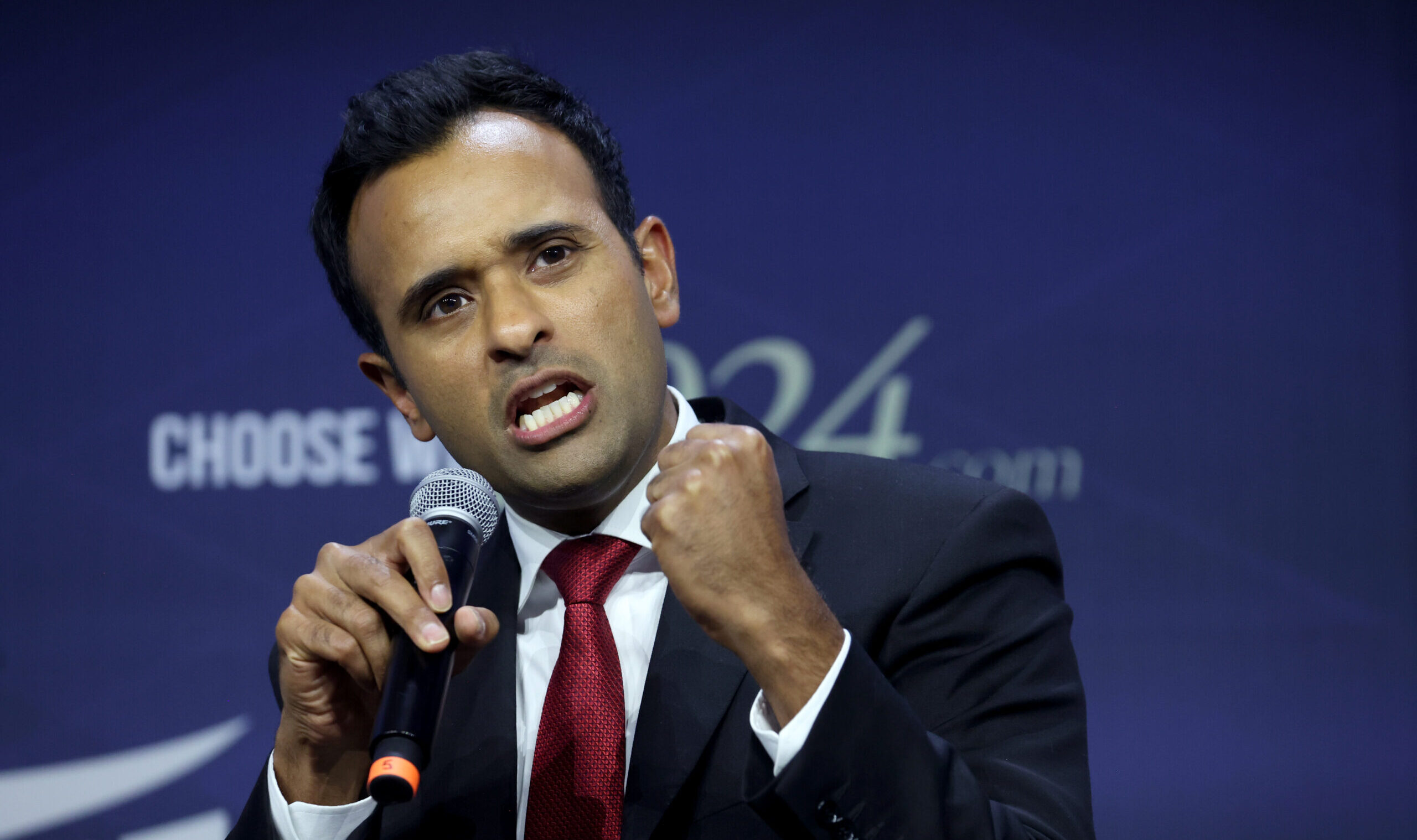Just a few years ago, as AI technology was beginning to spill out of start-ups in Silicon Valley and hit our smartphones, the political and cultural conversation about this nascent technology was not yet clear. I remember asking former Google CEO Eric Schmidt on Honestly in 2022 if AI was just like the sexy robot in Ex Machina. I literally said to him, “What is AI? How do you define it? I do not understand.”
I cringe listening to that now because today, in the waning days of 2024, not only has it become clear what AI is and how to use it—ChatGPT processes over a billion queries per day—but it’s also becoming clear what the political and cultural ramifications—and the arguments and debates—around AI are going to be over the next few years.
Among those big questions are: Who gets to lead us into this new age of AI technology, what company is going to get there first and achieve market dominance, how will those companies be structured so that bad actors with nefarious incentives can’t manipulate this technology for evil purposes, and what role should the government play in regulating all of this?
At the center of these important questions are two men, Sam Altman and Elon Musk. And if you haven’t been following, they aren’t exactly in alignment.
They started off as friends and business partners. In fact, Altman and Musk co-founded OpenAI in 2015. But over the years, Musk grew increasingly frustrated with OpenAI until he finally resigned from the board in 2018. That feud escalated this past year when Musk sued Altman and OpenAI on multiple occasions to try to prevent the company from launching a for-profit arm of the business, a structure that Musk claims is never supposed to happen in OpenAI. He also argues that changing its structure in this way might even be “illegal.”
On the one hand, this is a very complex disagreement. To understand every single detail of it, you probably need a law degree and special expertise in American tax law. But you don’t need a degree or specialization to understand that, at its heart, this feud is about something much bigger and more existential than the business model of OpenAI, although that’s extremely important.
This is really a fight over who will ultimately be in control of a technology that some say, if used incorrectly, could very well make human beings obsolete.
Here to tell his side of the story today is Sam Altman. We talk about where AI is headed, and why he thinks superintelligence—the moment where AI surpasses human capabilities—is closer than ever. We talk about the perils of AI bias and censorship; why he, a person who has long opposed Trump, donated $1 million to the president-elect’s inaugural fund; what happens if America loses the AI race to a foreign power like China, and, of course, what went wrong between him and the richest man on Earth.
Click below to listen to the podcast, or scroll down for an edited transcript of our conversation:
On the state of AI technology:
BARI WEISS: The last time we spoke was in April of 2023. ChatGPT had just launched, and people were just at the beginning of trying to figure out what this technology was and how it might transform their everyday lives. Sitting here in December of 2024, ChatGPT is a household name. And people all over the world are using AI tools every single day to do everything from math tutoring for their kids to drafting emails to debugging code. Tell me about how ChatGPT and AI technology has changed since we last spoke, and whether or not it’s where you expected it to be today.
SAM ALTMAN: The technology itself has gotten way better. If you think about the AI we were excited about back in April of 2023, it was so primitive, relative to what we have now, and the things that the technology is capable of are pretty mind-blowing to me.
If we come back in another 18 months and talk about what it can do, I think it will feel as big or even bigger than the gap from April 2023 to December 2024.
The other thing that’s happened is it’s really integrated into society. Back then, it was still a curiosity. People really use it now a lot for their work, their personal lives. I’ve never seen a technology become widely adopted this fast. That part of the adoption curve happened much more quickly than I thought.
BW: How are you using the tool that you have helped create in your daily life?
SA: I use it in all sorts of ways, but a few months ago, we released search integration, and now ChatGPT can search the internet for real-time information. That doubled my usage all at once. And since then, I must have still used Google for something, but I can’t remember what it is. I switched ChatGPT to be my default search in Chrome, and I have not looked back. Now when I remember the way that I used to search, it feels like that was like a pre-iPhone kind of equivalent.
On his feud with Elon Musk:
BW: You’re in a very public battle right now with your original OpenAI co-founder, Elon Musk. OpenAI began in 2015 as a nonprofit. In a blog post introducing OpenAI to the world in December of that year, you wrote, “OpenAI is a nonprofit artificial intelligence research company. Our goal is to advance digital intelligence in the way that is most likely to benefit humanity as a whole, unconstrained by a need to generate financial return. Since our research is free from financial obligations, we can better focus on a positive human impact.”
In 2019, OpenAI moved to what it called a hybrid model with a for-profit arm that got a $1 billion investment from Microsoft. Since then, Microsoft has poured something like $13 billion into the company.
Elon’s relationship with the company soured over time because he disagreed with that shift, and he eventually left the company and stepped down from the board. This past year, Elon has sued you and OpenAI on several different occasions, arguing that you are in some kind of contract violation by putting profits ahead of the public good in the move to advance AI. Then, last month, Elon asked the District Judge in California to block OpenAI from converting to this for-profit structure.
Did I summarize it properly and is there anything crucial that I left out?
SA: You mostly summarized it properly. But it was Elon that most wanted OpenAI to be a for-profit at one point, and had made a bunch of proposals—like OpenAI being part of Tesla—mostly just to create a new for-profit that he was going to be in control of. So other than that, I think a lot of the summary there is correct.
BW: What is the fundamental conflict between Elon Musk and his various allies—Meta being one of them—and you guys?
Maintaining The Free Press is Expensive!
To support independent journalism, and unlock all of our investigative stories and provocative commentary about the world as it actually is, subscribe below.
Subscriber Benefits:
Full access to all articles, investigations and columns
Access to the comments section on every piece we publish
Weekly columns from Nellie Bowles, Douglas Murray, and Bari Weiss
First chance to purchase tickets for live Free Press events

 By The Free Press | Created at 2024-12-19 17:01:51 | Updated at 2025-01-01 16:22:17
1 week ago
By The Free Press | Created at 2024-12-19 17:01:51 | Updated at 2025-01-01 16:22:17
1 week ago








